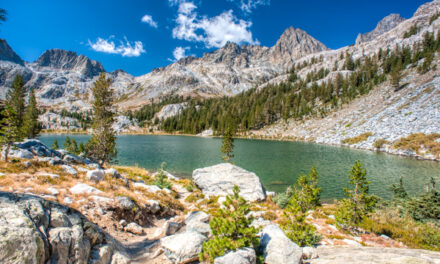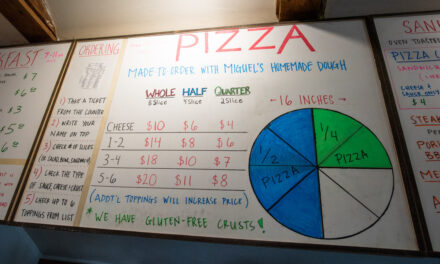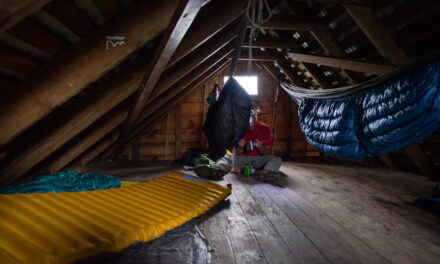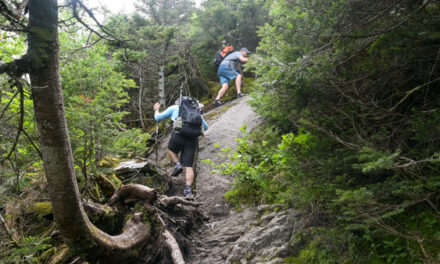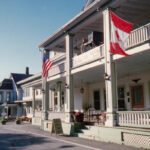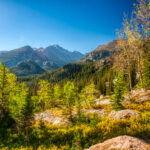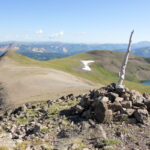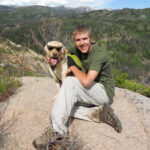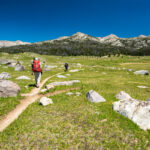Cold Night at Boulder Pass
Boulder Pass – Glacier National Park, MT
11
SEPTEMBER, 2018
September is called ‘shoulder season’ in Glacier National Park. I’ve learned that when it comes to Glacier shoulder season is another word for ‘Winter!’ I spent the 2nd night of my 2018 Glacier hike at the coveted Boulder Pass campground in the less-traveled North Fork area of the Park. At 7,200 feet, the Boulder Pass campsite is the highest elevation campsite in all of Glacier. It also rests at the summit of the climb to the Pass. Aside from a few stunted trees, the camp is entirely exposed to the steady icy wind that blows up the mountain from the west. Adding the 30-degree temperatures, sleet, snow, and ice pellets I experienced during my night at Boulder Pass it made for the coldest night backpacking in my life.
The Journey to Boulder Pass – it almost didn’t happen
I could write a book about all that transpired before I did that climb up to Boulder Pass. The short version is that I never expected to be at Boulder Pass in 2018. Glacier was once again on fire that year. The Howe Ridge fire was burning in the Lake McDonald area, near the North Fork section where my hike would take place. Due to heavy wildfire smoke and the memories of my cancelled 2017 Glacier hike (due to the infamous Sprague fire), I had all but canceled my 2018 trip. But at the last moment, a snowstorm dumped nearly a foot of snow on Glacier. The snow didn’t extinguish the fire, but it moderated it. More importantly, the snow reduced the smoke. I decided to take a chance and headed off to Glacier.

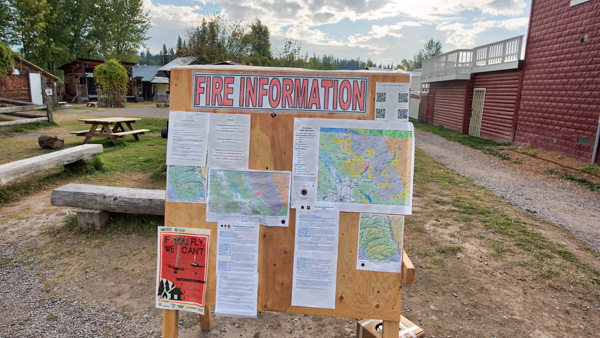
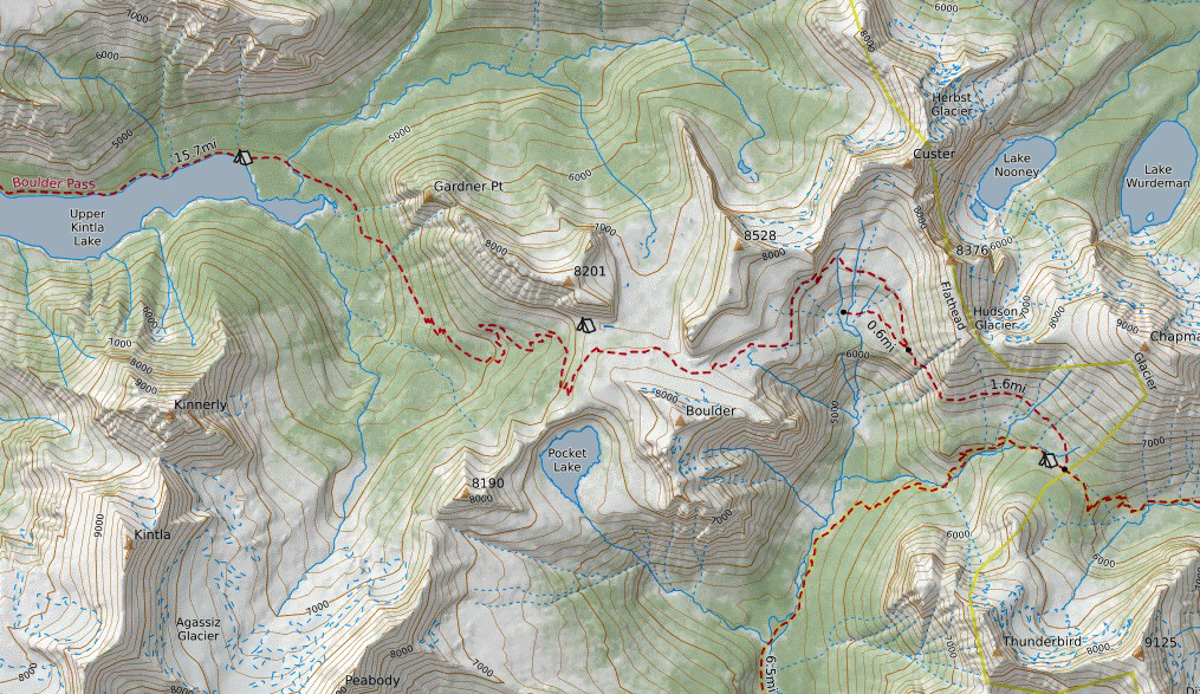
Hike to Boulder Pass
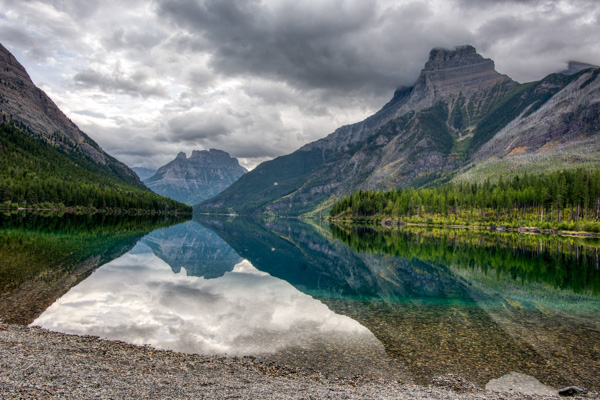
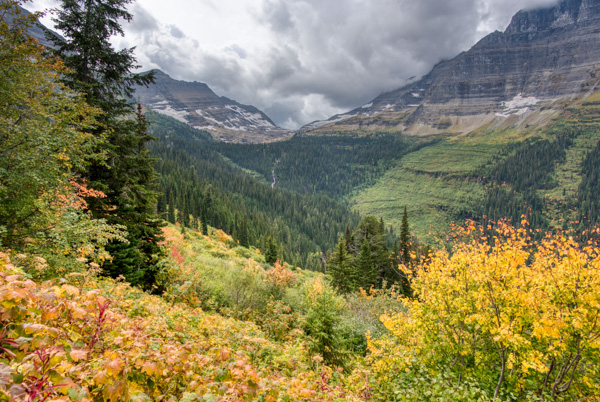
The first day of my 2018 Glacier hike was an uneventful 8 miles to the Kintla Lake campsite. Around the campfire that night, I was regaled with stories from a group that had attempted to make it to Boulder Pass but had to turn back due to miserable weather on the climb. Some serious foreshadowing! The following day I started the 12-mile hike to Boulder Pass. It was a dreary, cold, rainy morning – perfect hypothermia weather. The foreboding weather cast a gloomy mood to my solo hike. At the Upper Kintla Lake campground, I put on my fleece layer but was still cold. The 3200-foot climb to the pass provided plenty of exertion warmth and epic views. After three hours of climbing in rain, snow, sleet, and ice pellets, I practically stumbled over the summit cairn.
“Far away in Montana, hidden from view by clustering mountain-peaks, lies an unmapped
northwestern corner – the Crown of the Continent… Here is a land of striking scenery.” – George Bird Grinnell
Reflecting on the climb to Boulder Pass
‘When I look back at the video and pictures from the morning I climbed Boulder Pass, I still get chills. During the climb, I deliberately didn’t think much about it. Years of backpacking had conditioned me to place my brain on hold and mindlessly put one foot in front of the other. If I did that, I knew I would reach the summit of the climb, the campsite, and much-needed shelter in a relatively short time. I was exposed to icy rain, ice pellets, snow, sleet, and an ever-present cold wind at various points during the climb. It was one of the few times during my hikes I relished a 3200-foot elevation gain climb because it offered much-needed warmth from physical exertion. Anytime I stopped, hypothermia would creep in, and the shaking would start. In hindsight, it was frightening, but I couldn’t/wouldn’t let my mind ‘go there’ at the time. The climb took 3 hours from the upper Kintla Lake Campground to the summit cairn.
Boulder Pass Campground
Reaching the summit of the climb came as a surprise. One moment I was grinding steeply uphill, and the next, I was on flat ground, standing next to a cairn. I thought, “whoa, this must be the summit.” I looked around for the campsite but initially saw nothing obvious. But I continued along the trail and found the campground marker a short distance past the cairn. Boulder Pass Campground sits at the base of Gardiner Peak on a point of land 100 meters north of the main trail. The camp’s privy tells the story best – glorious views but wholly exposed. I shared the campsite with one other hiker, Curt. We never saw another person during our stay. The wind was constant. Rain, sleet, ice, and snow fell intermittently and very heavy at times. We got chased to the tents early that night.

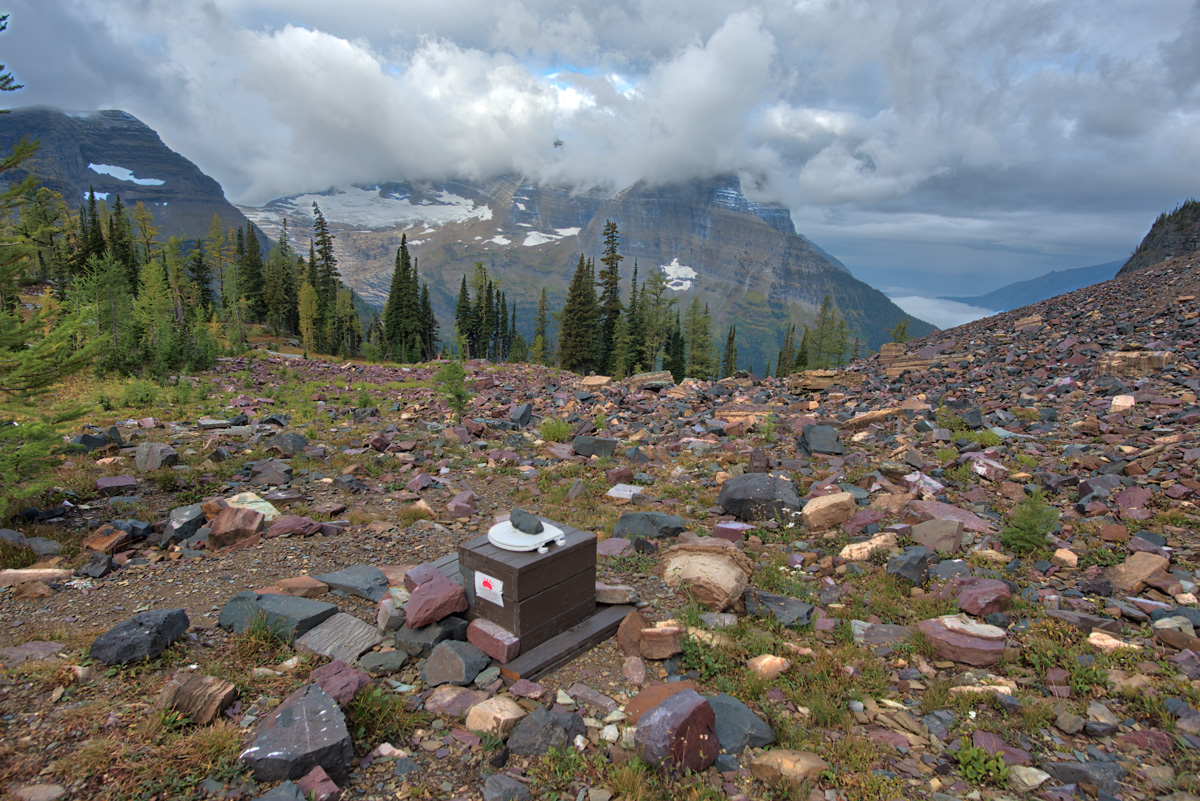
Cold like I’d never been before


It was unpleasant being confined to the tent. Everything was wet, and the icy wind blew right through. When the ice pellets fell heaviest, the tent would collapse from the weight on the cuben fiber. We escaped the tents briefly between the storms – once to collect water and once to eat a quick dinner. It was a long, lonely, scary night. As the temperature continued dropping, I quickly found my aging sleeping bag wasn’t up to the task. I added layer after layer of clothes until I had everything on except my rain gear. Eventually, I put the Zpacks rain gear on too! Three times during the night, I boiled water and drank it to get some heat on the inside.
Conclusion – Cold night at Boulder Pass
The next morning couldn’t come soon enough. The most generous thing I could say is that I survived that night. At one point, the temperature dropped into the low 20s, and I wondered how the situation would end. I found all the down in my 10-year-old 32-degree sleeping bag had clumped in the corners of the baffles. This effectively meant the only thing providing me warmth was the thin material of the sleeping bag shell. I did have my life-saving NeoAir Xtherm pad, and it’s insulating effect may have saved my life. It was the coldest I had ever been while backpacking and the coldest I could remember being during my entire life. The harsh reality hit me throughout the night that no one could help me. It was excruciatingly lonely and as frightening as anything I had ever experienced.
The night at Boulder Pass was one of the most memorable nights I had ever experienced in the backcountry – in a negative sense. Ironically, my next night in Glacier, with a campfire and a large friendly group at the Bowman Lake Campground, ended up being the best backcountry camp night ever. The emotional ‘roller coaster’ I experienced over those two nights still amazes me. In the end it was a tremendous learning experience. As soon as I returned from the trip, I ordered a new Zpacks 20-degree sleeping bag to replace my aging Montbell 30-degree bag. I also bought a heavier Marmot Hype down jacket as well as numerous other cold weather gear items to prevent a repeat of the experience at Boulder Pass.

